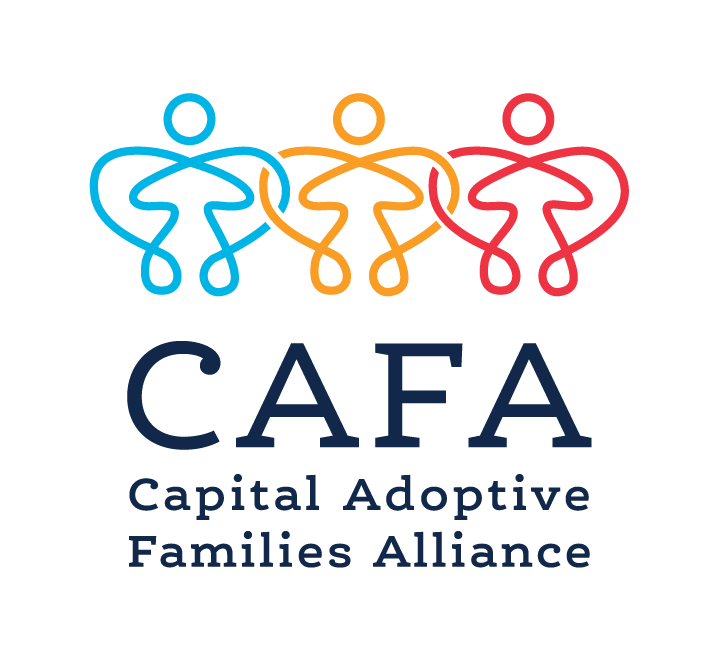
Choosing Therapeutic Support Services for You and Your Family
Families created through adoption have unique challenges that are not always addressed in traditional therapy settings. Although the adopted child in a family may have specific challenges, those challenges can greatly impact all members of the family.
Choosing a Therapist
An adoption competent therapist knows that children and teens should not be treated without significant input from parents and other significant family members. Parent’s involvement and support for the therapy is crucial to the success of treatment. An adoption-competent therapist will value the participation of adoptive parents.
If a therapist does not have experience and training in understanding the core issues of adopted children and their families, they may not take into account the child’s earlier experiences, leading to inaccurate diagnosis and treatment. In addition, adoptive parents may be viewed as the reason for the child’s problematic behaviors.
Adoption competent therapists understand the importance of helping children make sense of their early life experiences and find ways to help these experiences be incorporated into their new families.
Therapeutic Services Access Points
Therapeutic services for adopted children and their families can be accessed through several funding streams and vary in scope and level of treatment. The most common access points are through private pay or insurance, Medi-Cal, Victim Witness or Special Education under 26.5/AB3632. Each of these funding streams requires its own set of guidelines and referral process and may include co-pays or limitations on length or scope of services.
Adoptive parents may utilize one or more of these funding streams for their children. This site offers basic information on accessing services and how to obtain services that are the least restrictive and most helpful for their family.
Services Offered
The range of services offered vary from less intensive, such as weekly therapy with one provider to intensive in-home and community based services, such as Wraparound, aimed at averting the need for residential treatment. In certain extreme circumstances, residential treatment could be an option if you have exhausted all other therapeutic resources. See Glossary for descriptions of additional services.
For children adopted from Sacramento County, Medi-Cal funded mental health services are accessed through the child and family ACCESS team.
Sacramento County Access Team:
Phone: (916) 875-1055
Fax Access: (916) 875-9970
Toll-Free/24 hours: (888) 881-4881
TTY/TDD: (916) 876-8892
California Relay Service:
711 Bilingual staff and/or interpreters are available at no cost. When calling be sure to have the child’s Medi-Cal card handy and be prepared to answer questions regarding the child’s behavior. It is important to include history of abuse, neglect, number of placements, etc. that may have occurred prior to adoption. This will assist the ACCESS team in selecting a level of service and provider that can best assist the child and family. It is important to note that residential programs are NOT accessed through the mental health ACCESS team, but through the Adoption Assistance Program (AAP) of the county or state district office who finalized the adoption.
Sacramento County AAP can be contacted at: (916) 875-5967For children and youth residing in Sacramento County who were adopted from another county it may be necessary for the two counties to form an agreement prior to services being authorized. In these instances services may be delayed until an agreement is reached.
Types of Services
Adoption Wraparound +
A family centered, strength based, therapeutic program provided as an alternative to out of home placement.
Flexible Integrated Treatment (FIT) +
Flexible Integrated Treatment (FIT) serves infants, children and youth with a team approach to treatment planning allowing clinicians the flexibility to assess the level and type of services needed. As treatment needs vary over time, services are tailored to fit without interruption.
Service locations may include home, school, or community settings. Treatment interventions include multiple evidence-based programs and are used to include individual, family and group therapy. Working closely with the caregiver, skills are developed to replace the high-risk behaviors.
The goals of the program include building on the youth’s strengths and successes, reinforcing family connections, and improving overall mental and behavioral health.
Providers
River Oak for Children: https://www.riveroak.org
Stanford Youth Solutions: http://www.youthsolutions.org
Uplift Family Services: https://upliftfs.org
Turning Point Community Programs: https://www.tpcp.org
Therapeutic Behavioral Services (TBS) +
Therapeutic Behavioral Services (TBS) is an adjunctive program that supports the services you already have. TBS is an intensive, one to one, short-term community based mental health treatment designed for youth (with Medi-Cal) up to age 21 with serious emotional problems who are engaging in specific behaviors that endanger their safety, or place them at risk for moving to a higher level of care in a group home or locked facility.
The TBS team helps identify the trigger and the pay-off to a problem behavior. Very specific plans are designed to allow the child or youth’s needs to be met in a healthy way. Working closely with the caregiver, skills are developed to replace the high-risk behaviors.
Providers
River Oak for Children: https://www.riveroak.org
Stanford Youth Solutions: http://www.youthsolutions.org
Uplift Family Services: https://upliftfs.org
Turning Point Community Programs: https://www.tpcp.org



